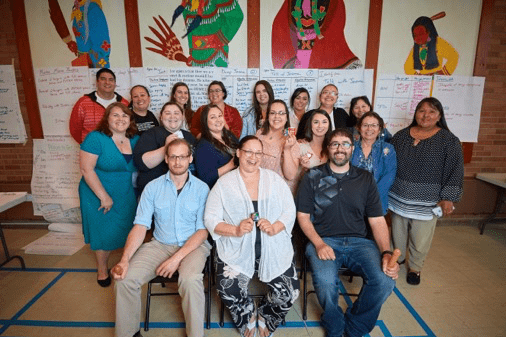
Teen Pregnancy and Native Americans: A Complex and Persistent Issue
Teen pregnancy remains a significant public health concern in the United States, with far-reaching consequences for both the young mothers and their children. Native American youth are disproportionately affected by this issue, facing higher rates of teen pregnancy than any other racial or ethnic group in the country. This disparity highlights the unique challenges and vulnerabilities faced by Native American communities and underscores the need for tailored interventions and support systems.
Prevalence and Risk Factors
According to the Centers for Disease Control and Prevention (CDC), the teen pregnancy rate among Native American youth aged 15-19 is approximately 2.5 times higher than the national average. This rate has remained relatively stable over the past decade, despite overall declines in teen pregnancy rates in the United States.
Several factors contribute to the high rates of teen pregnancy among Native American youth, including:
- Poverty and economic instability: Native American communities often experience high levels of poverty and unemployment, which can limit access to education, healthcare, and other essential resources.
- Lack of access to comprehensive sex education: Many Native American youth lack access to age-appropriate and culturally sensitive sex education, which can result in limited knowledge about contraception and safe sexual practices.
- Cultural factors: Some Native American cultures may emphasize early marriage and childbearing, which can influence the attitudes and behaviors of young people.
- Historical trauma: The legacy of colonization and oppression has had a profound impact on Native American communities, leading to intergenerational trauma and social problems that can contribute to teen pregnancy.
Consequences and Challenges
Teen pregnancy can have significant consequences for both the young mothers and their children. Young mothers are more likely to experience health complications during pregnancy and childbirth, and their children are at increased risk for low birth weight, developmental delays, and other health problems.
In addition to health risks, teen pregnancy can also have social and economic consequences. Young mothers may face challenges completing their education, finding employment, and establishing stable housing. Their children may also face barriers to success in school and life.
Addressing the Issue
Addressing the issue of teen pregnancy among Native American youth requires a multifaceted approach that involves both community-based interventions and policy changes.
Community-based interventions:
- Comprehensive sex education: Providing age-appropriate and culturally sensitive sex education is essential for equipping Native American youth with the knowledge and skills they need to make informed decisions about their sexual health.
- Access to contraception: Ensuring that Native American youth have access to a range of contraceptive methods, including long-acting reversible contraceptives (LARCs), can help prevent unplanned pregnancies.
- Mentoring and support programs: Providing mentorship and support to Native American youth can help them navigate the challenges of adolescence and make healthy choices.
- Community outreach: Engaging with Native American communities to address the root causes of teen pregnancy, such as poverty and historical trauma, is crucial for creating a supportive environment for young people.
Policy changes:
- Increased funding for Native American health programs: Investing in Native American health programs, including those that focus on teen pregnancy prevention, is essential for providing the resources needed to address this issue.
- Improved data collection and research: Collecting accurate and timely data on teen pregnancy among Native American youth is crucial for understanding the scope of the problem and developing effective interventions.
- Cultural sensitivity in policies and programs: Ensuring that policies and programs are culturally sensitive and responsive to the needs of Native American communities is essential for building trust and fostering collaboration.
Conclusion
Teen pregnancy among Native American youth is a complex and persistent issue that requires a comprehensive and culturally sensitive approach. By addressing the underlying risk factors, providing access to essential services, and implementing effective interventions, we can create a more supportive environment for Native American youth and help them reach their full potential.